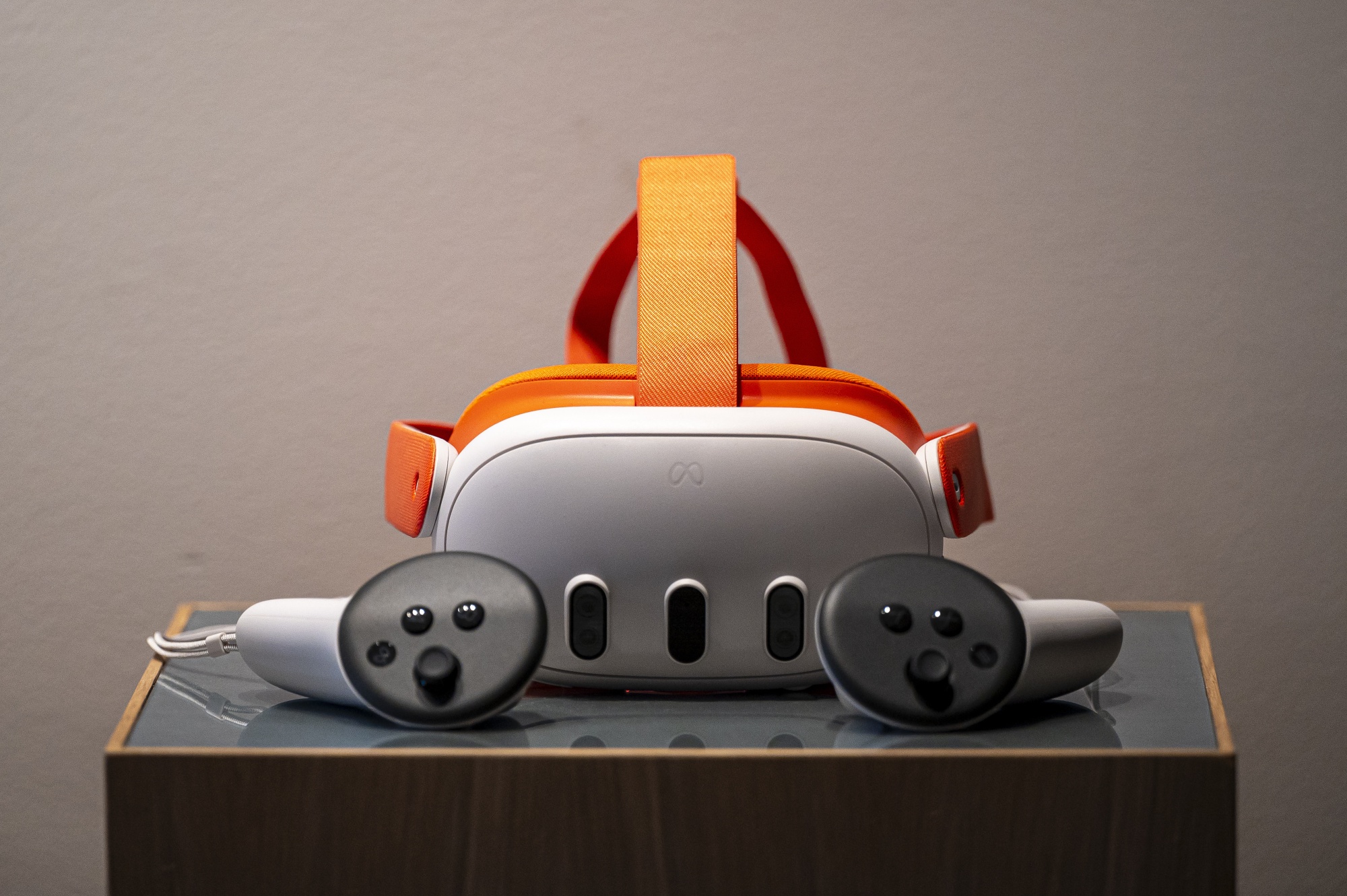Calling all Meta Quest enthusiasts! The future of virtual reality (VR) multitasking just got a whole lot more exciting. Meta is currently testing a groundbreaking feature for its Quest headsets that allows users to freely position windows in their virtual space, mimicking the functionality of Apple’s high-end Vision Pro headset. This move signifies a significant shift towards increased productivity potential for the Meta Quest, potentially blurring the lines between gaming and professional applications.

Stepping Up Multitasking: The New Freeform Window Placement Feature
Traditionally, multitasking in Meta Horizon OS (formerly Meta Quest OS) has been limited to displaying three virtual windows side-by-side. This might seem adequate for basic multitasking, but it pales in comparison to the flexibility offered by other VR headsets. However, a recent discovery by data miner Luna completely changes the game.
Unveiling the Feature Through Public Testing
Luna unearthed the experimental freeform window placement feature hidden within version 67 of the Meta Quest Public Test Channel (PTC). This feature allows users to position windows containing 2D applications like browsers or system tools like libraries and settings freely throughout their virtual space.
Comparing Approaches: Meta vs. Apple’s Vision Pro
While both Meta and Apple offer freeform window placement functionalities, there are key differences to consider. Here’s a breakdown of their approaches:
Meta’s Freeform Window Placement – A Work in Progress
- Limited Scope: Currently, the Meta implementation allows users to move up to three windows freely. Three additional windows can remain docked in a designated location.
- Spatial Limitations: While windows gain some freedom of movement, they seem to have a limited “memory.” If a user moves too far or resets their view, the windows revert to default positions.
- Enhanced Control and Comfort: The update also introduces additional options like switching between curved and flat windows. Additionally, users can adjust the virtual environment’s brightness with a dimmer when utilizing 2D apps (currently unavailable in passthrough mode).
Apple’s Vision Pro – Setting the Benchmark
- Unrestricted Placement: Apple’s Vision Pro boasts unparalleled freedom when it comes to window placement. Users can not only move windows around but also lock them into specific locations. These windows persist even if the user moves around the physical space or removes the headset entirely.
- Physical Object Interaction: The Vision Pro’s windows operate almost like physical objects within the virtual environment. Users can interact with them, resize them, and even overlap them, creating a truly immersive and dynamic workspace.
The Price Advantage: Meta Quest as a Compelling Alternative
Despite Meta’s freeform window placement feature still being under development, it opens exciting possibilities for Meta Quest users. While it might not currently match the full functionality of Vision Pro, Meta Quest offers a significant advantage: affordability.
More Than Just Games: Unveiling the Quest’s Productivity Potential
Recent marketing from Meta has hinted at a shift in focus, showcasing the Quest’s potential beyond just gaming. The introduction of freeform window placement further underscores this direction. This functionality has the potential to transform the Quest into a viable tool for tasks like remote work, education, and creative collaboration in VR.
A Glimpse into the Future: The Impact of Freeform Window Placement
The arrival of freeform window placement marks a turning point for VR user interfaces. It signifies an understanding that VR isn’t just about replacing the physical world with a virtual one; it can create entirely new ways to work and interact with information.
Benefits for Users
The potential benefits of freeform window placement across various aspects are vast:
- Enhanced Multitasking: Users can have multiple applications and tools open simultaneously, arranged in a way that optimizes workflow.
- Increased Productivity: The ability to personalize the virtual workspace can lead to increased efficiency and focus while working within VR environments.
- Improved Collaboration: The freedom to share and interact with virtual windows can revolutionize remote collaboration and teamwork in VR.
Frequently Asked Questions
Q: What is freeform window placement, and how does it work?
A: Freeform window placement allows users to position windows containing 2D applications freely throughout their virtual space in Meta Quest headsets. This is currently an experimental feature.
Q: How does Meta’s freeform window placement compare to Apple’s Vision Pro?
A: While both offer similar functionalities, Apple’s Vision Pro offers more flexibility and allows windows to persist across sessions. Meta’s implementation seems to have limitations in terms of window mobility and memory.
Q: What are the potential benefits of freeform window placement in VR?
A: Freeform window placement in VR can lead to enhanced multitasking, increased productivity through personalized workspaces, and improved collaboration through the ability to share and interact with virtual windows.




